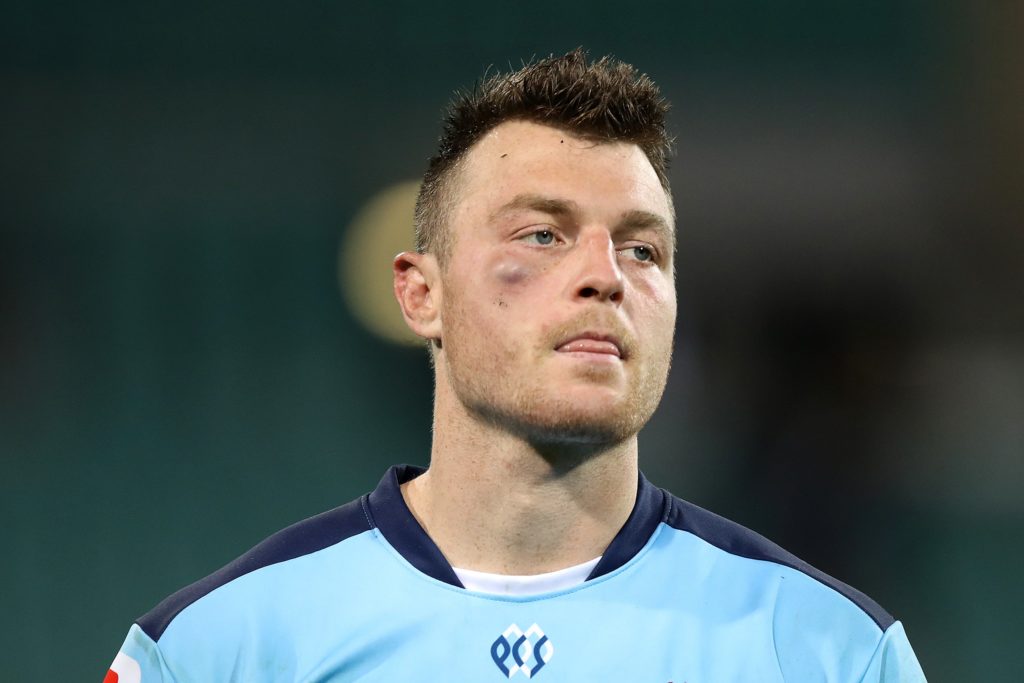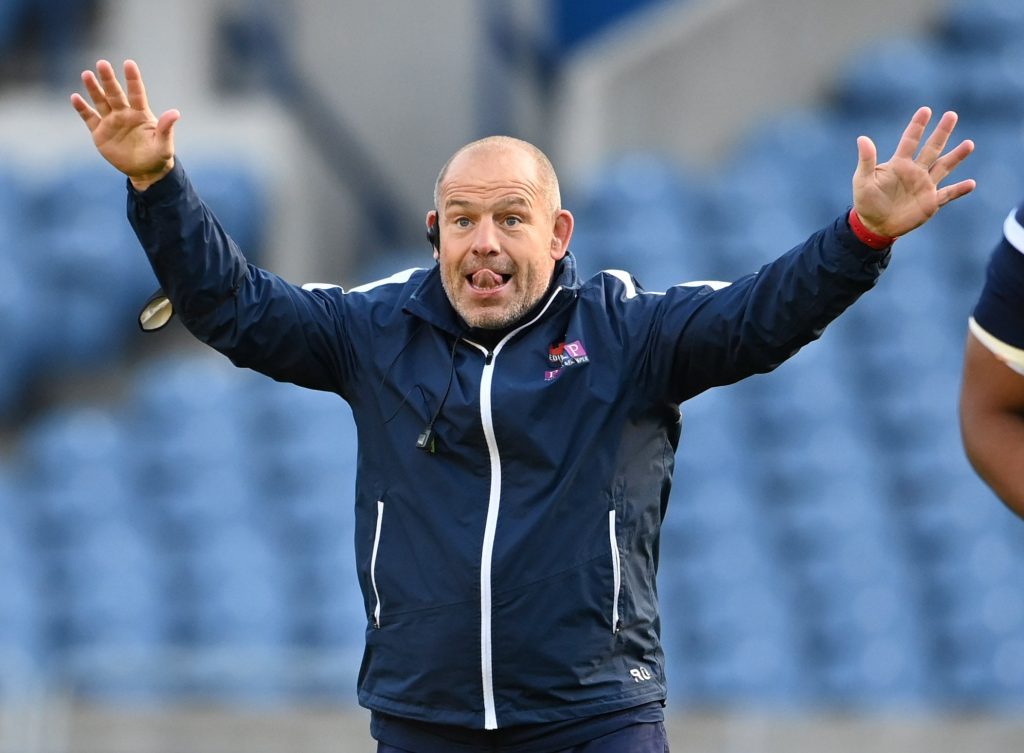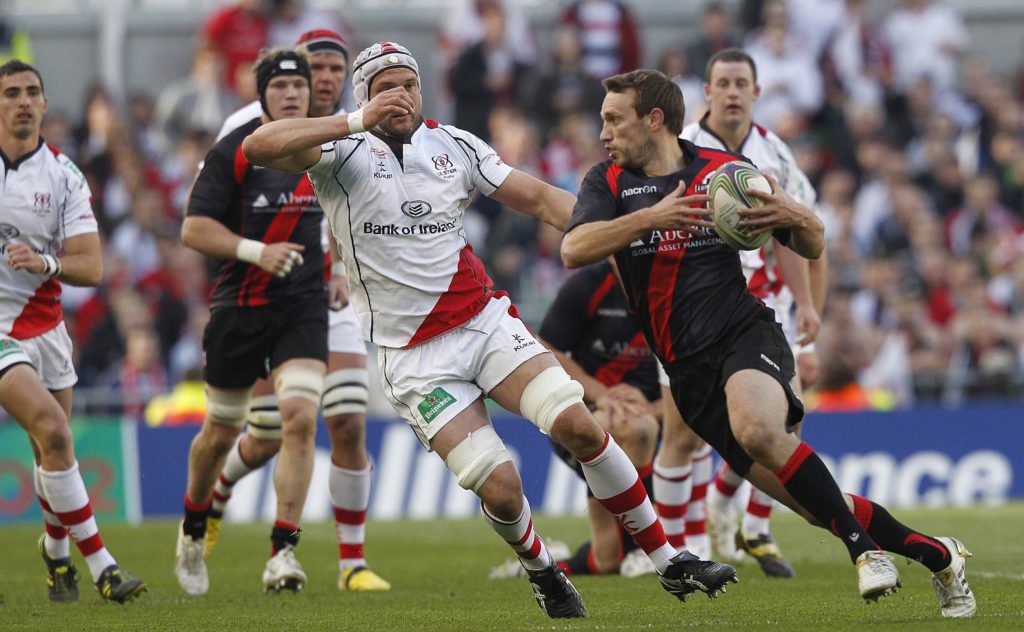Glasgow and Edinburgh launched their new campaigns last week at the famous Falkirk Kelpies, two huge, metallic horses rearing from the ground by the midway point of the canal that still bonds Scotland’s largest cities.
The canal was once an umbilical cord linking east to west. The Kelpies pay homage to the heavy horse and its role in shaping the land and structures of the region. Hauling ploughs, carting freight, even towing long, narrow boats along the water for mile after mile.
Scottish rugby fans can empathise with the heavy horse, for that’s how it felt to follow these two clubs for much of last season, pulling for the finish line, desperate to shed the burden of defeat and failure and to end this grim campaign.
The Scotstoun lot are used to dining on gourmet fare – play-off rugby and Champions Cup glamour, not the veritable Pot Noodle of home and away defeats by the Dragons
In the west, the goalposts were not so much moved on Danny Wilson as transplanted to a different pitch altogether. The ink was barely dry on his Glasgow contract when coronavirus stormed these shores, bringing with it a wave of frantic austerity.
Wilson could not refresh a squad that sorely needed big recruits. The national team promptly hoovered up all of his international regulars for training camps, the Autumn Nations Cup and Six Nations, and called in more still to train alongside the front-liners. Add in the usual smattering of injuries and suspensions, and Wilson was left scrambling not for the right players, but any players at all. This enforced make-do-and-mend approach was never going to yield success and nor did it cut much ice with the natives.

The Scotstoun lot are used to dining on gourmet fare – play-off rugby and Champions Cup glamour, not the veritable Pot Noodle of home and away defeats by the Dragons. In January 2020, Glasgow held Exeter Chiefs to an oscillating 31-31 draw at Scotstoun. Eleven months later, Wilson’s Warriors were atomised 42-0 in Devon. Against this backdrop, fans grew restless. Perhaps the long and brutal list of constraints was never fully articulated to them, but you can see why some questioned how gravely their club seemed to be unravelling before their eyes.
The past year will have tested Wilson’s patience as much as his rugby acumen, but he has emerged favourably from the tumult. He thrived in financial chaos before, delivering the Challenge Cup to Cardiff in horribly strained times, but nothing quite on this scale.
Wilson was always going to blood the next crop, but Glasgow’s perilous playing resources allowed – or perhaps in some cases coerced – him to crank up that conveyor belt. No replacement for Stuart Hogg and no Tommy Seymour meant more minutes for the electric Rufus McLean and Ollie Smith. No Adam Hastings and a misfiring Brandon Thomson gave Ross Thompson a clear run at the 10 jersey, a berth he took to with considerable aplomb.
John Barclay, the former Scotland captain who ended his career at Edinburgh in 2020, described Cockerill as ‘an agent of positive change at the start but a malign presence thereafter’.
Rory Darge, stuck in a back-row bottleneck at Edinburgh, moved west and tore up the Rainbow Cup. Jamie Dobie had already broken through but the 20-year-old scrum-half got more game time and more exposure to the professional trenches. Cole Forbes, 21, arrived from New Zealand and added pizzazz to the backline.
It would strain credulity to talk of dynasties, but a burgeoning, Scottish core is so utterly key to how the pro-teams operate. Look at Glasgow’s 2015 champion vintage, with Hogg, Finn Russell, Jonny Gray, Mark Bennett, Alex Dunbar, Fraser Brown, Ryan Wilson, Pete Horne, Rob Harley and Henry Pyrgos all within a few years of each other, and Ali Price and Zander Fagerson following soon after.
By the end of the Rainbow Cup, Glasgow had rediscovered some of their mojo. And at last, Wilson has been able to tool up with the heavyweight signings he so desperately needed. Two international fly-halves, Domingo Miotti and Duncan Weir, the latter returning to the warm embrace of his home city, will work with Thompson. Jack Dempsey adds ballast and snarl to the back-row, Simon Berghan and Jamie Bhatti to the front. Sione Tuipulotu and Seb Cancelliere give Warriors more gears out wide, where Josh McKay is a hugely exciting addition from New Zealand.

In all, Wilson has a squad of his own making. He has a callow Scottish group thirsting for more front-line action, and he can continue his business of instilling set-piece grunt and pragmatism without discarding Glasgow’s cherished attacking blueprint. After a brutal year, Warriors are emerging from the gloom. Their future looks a whole lot rosier than their immediate past.
What to make of Edinburgh, then, whose own recent history is dominated by the pugnacious figure of Richard Cockerill.
A turbulent four-year reign as head coach ended by mutual consent in the summer. Cockerill had grabbed the foundering club by the scruff and made them a force in the early days of his tenure. He got them to the Pro14 play-offs and the Champions Cup knock-outs. He instilled discipline and belief and belligerence in players who had long looked pale shadows of their true selves. Some even called for Cockerill to replace Gregor Townsend after Scotland’s mortifying 2019 World Cup.
Blair has always been a cerebral type and as a half-back, a terrific footballer. Just as well, given he has been in charge barely three months, and has an eye-watering amount to get his head around.
But as time wore on, big games were lost and players grew increasingly disillusioned by the authoritarian regime under which they existed. Some complained about his intransigence and bullishness, the lack of variety in his game plan and the lack of empowerment afforded to them. John Barclay, the former Scotland captain who ended his career at Edinburgh in 2020, described Cockerill as “an agent of positive change at the start but a malign presence thereafter”. As a tracksuited lieutenant to Eddie Jones, the next stage of his career is fascinating.
Mike Blair will be a more progressive coach than Cockerill, for sure. He is a man steeped in Edinburgh rugby, a scrum-half at the heart of some of the club’s grandest days and identified in the winter of his playing career as a coach with vast potential.
Blair was a terrifically smart footballer and has always been a cerebral type. Just as well, given he has been in charge barely three months, and has an eye-watering amount to get his head around. Though this is a big role for a young coach in a top job for the first time, he has the chance to create something new and enduring. Edinburgh begin life at ‘Mini-Murrayfield’, as the recently constructed stadium in the shadow of the big house has been fondly dubbed, and finally have a home to call their own. The hope is that Blair, who will favour a far more balanced approach than his predecessor, can deliver an exciting, and victorious, brand of rugby to light the place up.
He must do so without his greatest firebrand. Some heavyweights have gone with Cockerill, and Duhan van der Merwe will be a colossal miss. For there are few wingers in European rugby who provide what the 6ft 4in juggernaut can. Rory Sutherland, another Lion, joins him at Worcester. Eroni Sau was let go despite a fine campaign on the wing. But unless a wealthy benefactor is willing to sink a few million into the club, Edinburgh cannot keep all of their stars indefinitely. Retaining the awesome back-row of Jamie Ritchie, Hamish Watson and Viliame Mata represents outstanding business.
 Ulster in 2012″ class=”wp-image-19397″ />
Ulster in 2012″ class=”wp-image-19397″ />And Edinburgh recruited well too. Ben Vellacott has come north in pursuit of game time and Scotland honours and he can bring a spark sorely lacking from the last days of Cockerill’s reign. Blair’s influence here is an enticing prospect. Henry Immelman comes with fine pedigree. Emiliano Boffelli and Ramiro Moyano are excellent additions with seriously impressive CVs. Boffelli was last marauding around the galactico-laden Racing 92 backline, while Moyano was part of a Toulon side featuring Eben Etzebeth, Sergio Parisse, Louis Carbonel and Gabin Villiere. Both are currently with Argentina in the Rugby Championship.
Blair, like Wilson, has a brood of young Scots. Ben Muncaster, Jack Blain and PJ Harrison were among the promising clutch to break through.
Save the development of those pups, the wretched season was a write-off for Scotland’s only professional rugby teams. They have been well backed, with good people at the helm and good players arriving. The new United Rugby Championship schedule eradicates many of the Test clashes that wipe out their squads. The burden rests on Wilson and Blair to ensure last term was an outlier, not the start of a downward trend.
More stories from Jamie Lyall
If you’ve enjoyed this article, please share it with friends or on social media. We rely solely on new subscribers to fund high-quality journalism and appreciate you sharing this so we can continue to grow, produce more quality content and support our writers.



Comments
Join free and tell us what you really think!
Sign up for free